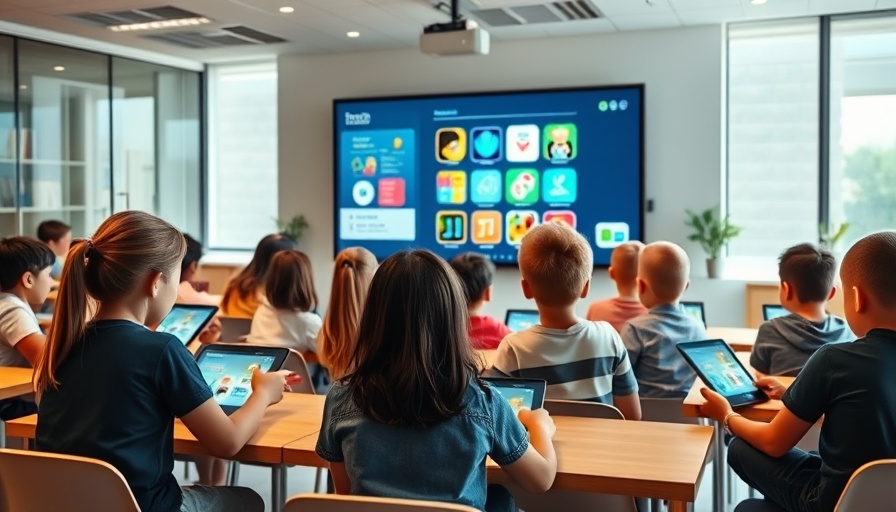
The Paradigm Shift: Education Apps Redefining Learning
The integration of technology into education has not just evolved; it has completely transformed how students engage with learning materials. Gone are the days when classrooms were limited to textbooks and lectures. Today, education apps provide interactive learning experiences that can be accessed anytime, anywhere. This evolution is not merely a trend—it's a fundamental shift in how knowledge is disseminated and consumed.
The Factors Fueling the Rise of Educational Apps
Over the past decade, several factors have driven the explosive growth of educational apps. Affordable smartphones, widespread internet access, and cloud-based platforms have made it easy for students to access a wealth of information right from their pockets. Language-learning applications like Duolingo and problem-solving tools like Photomath exemplify this new era, offering instant help and up-to-date information that traditional textbooks often lack.
Personalization: A Learning Experience Tailored Just for Your Child
One of the most compelling advantages of educational apps is their ability to personalize learning. Unlike a one-size-fits-all classroom approach, apps can adapt to each student's unique strengths and weaknesses. For instance, an AI-powered app might identify that a student struggles with multiplication and offer additional exercises to bolster their skills. This individualized attention not only builds confidence but also fosters a sense of autonomy, allowing children to learn at their own pace.
Gamification: Turning Learning into Play
Education apps tap into the principles of gamification to enhance engagement and enjoyment. Through leaderboards, rewards, badges, and interactive challenges, learning becomes more akin to playing a game. Applications like Kahoot! enable students to compete in quizzes with their friends, transforming tedious study sessions into lively competition. Studies indicate that such playful learning environments lead to better retention of knowledge, as the motivation to learn is amplified through fun and friendly rivalry.
Accessibility: Breaking Down Barriers to Learning
Educational apps also significantly enhance accessibility, allowing students to learn from virtually anywhere. This flexibility is especially beneficial in today's diverse educational landscape, accommodating various learning styles and needs. For families managing disabilities or challenging home environments, access to dependable educational resources through apps provides a vital lifeline to quality education.
Future Trends: The Evolving Landscape of Education Technology
As we look to the future, the influence of educational apps is only expected to grow. With advancements in artificial intelligence and machine learning, future apps will likely offer even greater levels of customization and interactivity. This technological evolution promises to not only enrich students' learning experiences but also empower parents to engage more meaningfully in their children's education.
What Parents Need to Know About Educational Apps
While the benefits of educational apps are abundant, it is vital for parents to remain vigilant about screen time limits and online safety. Setting boundaries for app usage can help foster a healthy balance between digital and offline learning activities. Furthermore, many educational apps focus on enriching content rather than mindless entertainment, so understanding which apps are most beneficial will empower parents to make informed decisions for their children.
In conclusion, educational apps are more than just tools; they are gateways to an enriched learning experience that is tailored, engaging, and flexible. By understanding and embracing this technological shift, parents can play a crucial role in their children's educational journeys. Encourage your child to explore new educational apps and witness the transformative impact they can have on their understanding of complex subjects and skills.
Take action now by researching and selecting some educational apps that might resonate with your child’s interests. By actively participating in this decision-making process, you can ensure that their learning experience is as enriching and personalized as possible.
 Add Row
Add Row  Add
Add 




Write A Comment